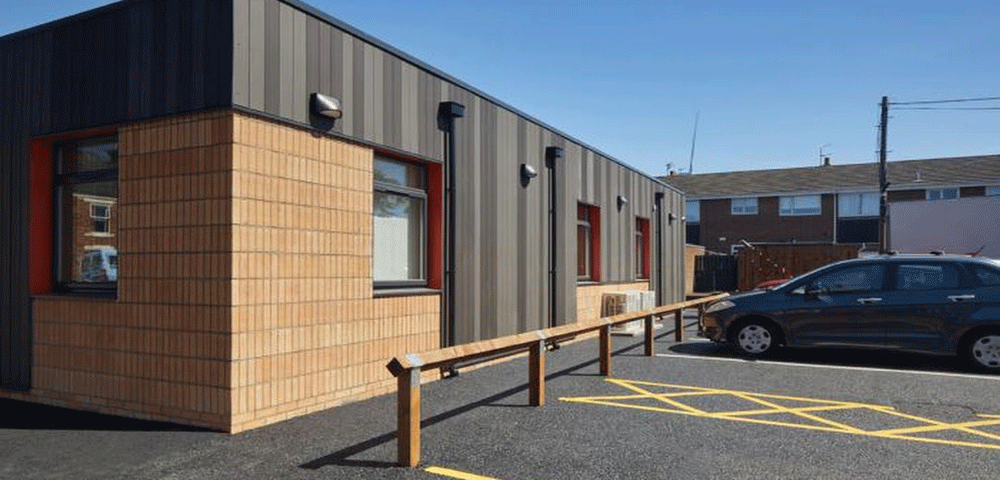The Many Uses of Portable Modular Buildings
Portable modular buildings have revolutionized the way we think about space utilization and construction. These versatile structures offer a multitude of uses across various industries, providing flexibility, cost-effectiveness, and convenience.
Here are some of the many ways these buildings are being utilized:
Construction Site Offices: Modular buildings serve as on-site offices for construction projects. They offer a quick setup, allowing project managers and teams to have a dedicated space for meetings, planning, and administrative work.
Classrooms and Educational Facilities: Schools often use modular buildings as temporary or permanent classrooms. They provide a quick solution to accommodate increasing student numbers or during renovation periods.
Healthcare Clinics: Modular buildings are utilized as medical clinics, especially in remote areas or during emergencies. They can house diagnostic facilities, consultation rooms, or temporary hospitals.
Retail Spaces: Retailers can quickly set up pop-up stores or additional retail space during peak seasons or events. These structures offer a customizable layout to suit specific product displays and customer traffic.
Housing and Accommodation: Modular buildings are increasingly used for affordable housing solutions, emergency shelters, or temporary accommodations for individuals affected by natural disasters or housing crises.
Office Spaces: Businesses utilize modular buildings as office spaces to accommodate a growing workforce or during office renovations. These structures can be customized to meet specific office needs.
Storage Facilities: They serve as storage spaces for various industries, from storing equipment on construction sites to acting as warehouses for retail or manufacturing businesses.
Entertainment Venues: Temporary event spaces, ticket booths, or even concert venues can be created using modular buildings, providing quick setup and breakdown for different events.
Military and Government Use: Governments and military agencies use modular buildings for field offices, barracks, command centers, and medical facilities due to their ease of transport and assembly.
Research Facilities: Modular buildings are also employed in the scientific community as laboratories, testing facilities, or offices for research projects.
Aapplications & Advantages of Portable Modular Buildings
Looking at Some of the Advantages
Speed of Construction: Modular buildings are constructed off-site, allowing for simultaneous site preparation and building fabrication. Once transported, assembly is quick, reducing overall construction time significantly.
Cost-Effectiveness: Their streamlined construction process and ability to repurpose modules make them cost-effective compared to traditional buildings. They often involve fewer labor hours and can be easily expanded or relocated as needs change.
Customization and Flexibility: These buildings are highly customizable, offering flexibility in design, layout, and size. They can be tailored to specific requirements, incorporating various amenities and features.
Sustainability: Many modular buildings are designed with sustainable materials and construction methods, reducing waste and environmental impact. Additionally, their ability to be repurposed or recycled makes them environmentally friendly.
Quality Control: Being constructed in a controlled factory environment ensures consistent quality and adherence to building codes and standards.
Appreciating Some of the Specific Applications
Disaster Relief: Modular buildings play a crucial role in disaster relief efforts, providing quick and efficient shelter solutions for displaced individuals. They offer a rapid response to housing shortages after natural disasters.
Remote Workspaces: In the era of remote work, companies often use modular buildings as remote offices, providing employees with dedicated workspaces outside the traditional office environment.
Healthcare Expansion: With the need for healthcare facilities growing rapidly, modular buildings offer a swift solution for expanding hospitals, clinics, or medical facilities to accommodate increasing patient numbers.
Off-Grid Living: Modular buildings designed with sustainability in mind can be equipped with renewable energy sources, making them ideal for off-grid living in remote or rural areas.
Temporary Events: From sports events to festivals, modular buildings serve as ticket booths, concession stands, restrooms, and temporary event spaces, providing functional solutions for organizers.
Agricultural Uses: Farmers use modular buildings as storage units, livestock shelters, or equipment sheds, providing protection and storage space for agricultural needs.
Hotel and Hospitality Industry: Hotels and resorts utilize modular buildings for additional guest rooms, amenities, or even entire resorts in remote locations.
Education Expansion: Portable Classrooms and Modular buildings cater to growing student populations or temporary classroom needs in schools and universities, offering an efficient solution to space constraints.
The adaptability and efficiency of portable modular buildings make them an increasingly popular choice across diverse industries, addressing various space and accommodation requirements. As technology advances and designs become even more innovative, their applications will likely continue to expand, providing solutions to ever-evolving needs.
